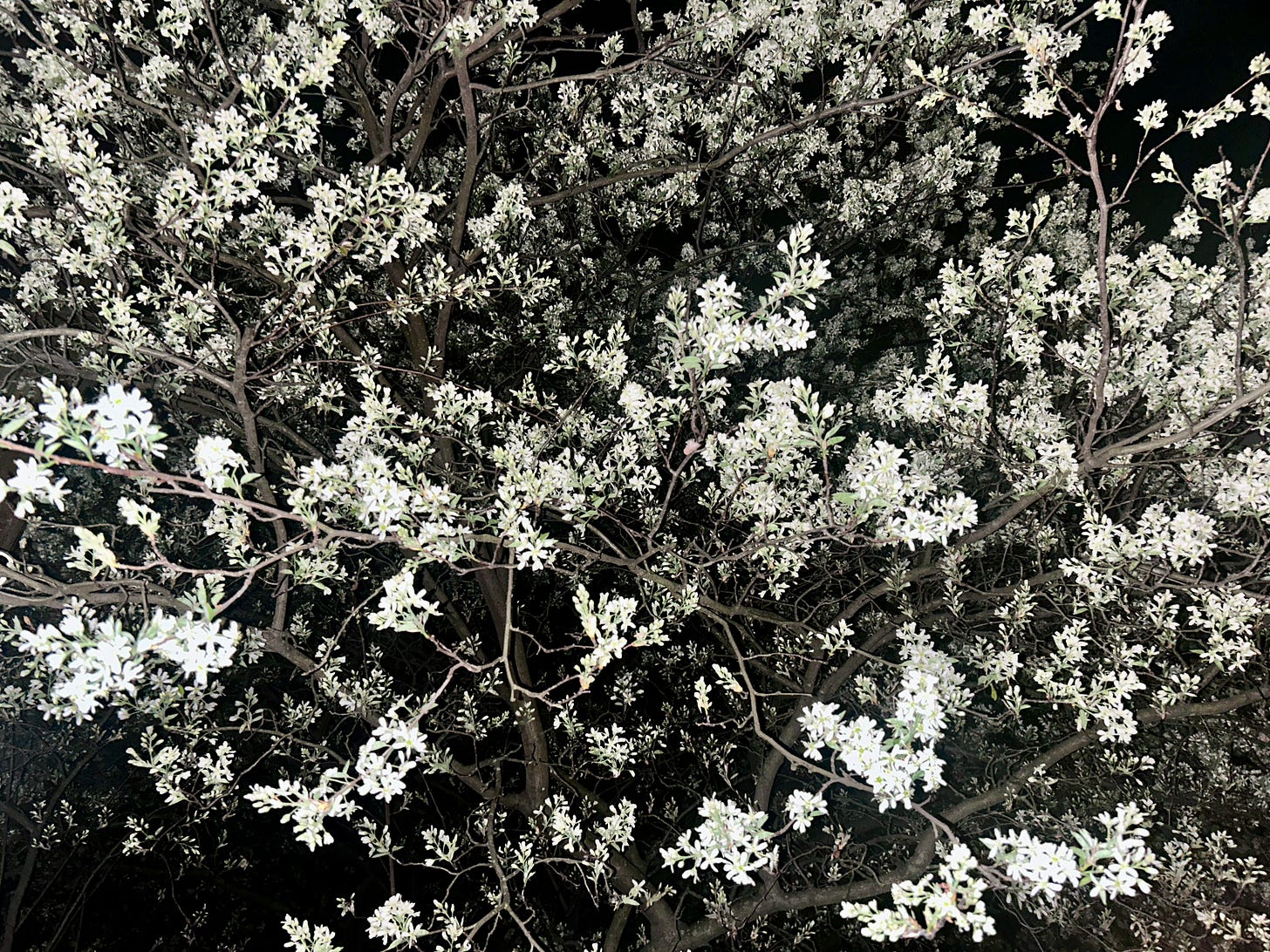Spring Is Just a Manner of Speaking
On Alberto Caeiro and the ways of keeping sheep
The azaleas, the cherries, and the magnolias are blooming once again along the quaint dilapidated streets of Philadelphia. Spring belongs to the East Coast, as does the fall, times of flowering and fruiting. To the territories west of the Mississippi, summer and winter, times of ripening and abscission. But it isn’t all—or even mostly—bucolic in Philadelphia. The roar of traffic follows you, down park paths and along historic side streets. The local neighborhood development corporation has widened the sidewalks and increased signage along Ridge Avenue, the main arterial, but the motorists keep adding horsepower to their cars. As if awakening from their own mechanical sort of torpor, they race down 19th-century streets until they hit a traffic signal or hit traffic itself—their license plates obscured behind a tinted frame or absent altogether. Don’t ask the police to care. They take a decidedly anti-carceral approach with those who spend tens of thousands of dollars customizing their cars.
This time of year, I read a lot of Fernando Pessoa, specifically Alberto Caeiro, his pastoral “heteronym” or persona. For 2025, it’s been this poem in particular:
When spring comes round again, I may no longer be in the world. I would like to think that spring is a person So that I could imagine she would weep, Seeing that she lost her only friend. But spring isn’t even a thing: It’s a manner of speaking. Not even the flowers come back, or the green leaves. There are new flowers, new green leaves. There are other sweet days. Nothing returns, nothing is repeated, because everything is real. From The Complete Poems of Alberto Caeiro, translated by Margaret Jull Costa and Patricio Ferrari (New Directions, 2020)
I’ve written about Pessoa and Caeiro before, specifically Pessoa’s development of the heteronym and how, unlike the myth of instant creation that Pessoa later constructed—his “breakthrough day” of March 8th, 1914—the manuscripts tell a more complicated and mundane story—but don’t they always? For my part, I had almost forgotten I’d written about this—not from any premature senescence, I swear—there’s just something to Caeiro’s seemingly straightforward style and persona that resists retrospection. And that adds more joy to the reading. I can reexamine the poems, reexamine the poet, and come at both of them from a slightly different angle.
These past few weeks I’ve been thinking about Caeiro’s title for himself, “the keeper of sheep”, and how he never calls himself a proper shepherd. Unlike many aspects of Pessoa’s work, this is consistent. As Caeiro writes in the poem of the same name, “I am a keeper of sheep/the sheep are my thoughts”. Unlike Pessoa, Caeiro is uneducated, lives in the country, among the peasants, but like, Pessoa he’s separate from them, never fully partaking in their labors, an observer of life rather than a participant. I’m reminded of parts of my own childhood, going up into the high country of Colorado on horseback with my mother, a rangeland specialist at the Forest Service, as she checked on cattle and sheep grazing permits on federal land. To the ranchers there, someone who keeps sheep is not a shepherd but a sheepherder. The distinction comes from how the animals are managed: a sheepherder drives a large flock of sheep from behind, whereas a shepherd leads a smaller number of sheep from the front—a distinction of the industrial versus the pastoral. In both cases, the sheep are not thoughts. The sheep are sheep.
Spring hasn’t quite come to the Rocky Mountains. The Colorado ski season has only just ended. Parts of the West often see their heaviest snowfalls in March, when warm air from the Gulf of Mexico—I refuse to call it “The Gulf of America”; I hate woke neologisms—collides with cold air coming down from Canada. Meanwhile, back in the city, you can feel in the afternoon the first intimations of that overpowering humidity that makes everyone go “down the shore”. I should have liked to ask Pessoa—(him as Caeiro)—what he makes of the distinction between shepherds and sheepherders. Perhaps this is too much fine-grained thinking. Nature, the living part of it, abhors discrete categories, much more than it does a vacuum. The lines of Caeiro have such a simple beauty they read as if they’ve budded from the trees themselves, but that, of course, is just a manner of speaking.


